The circus helping Senegal's former child beggars
- Published
Senegal's only circus troupe, Sencirk, was founded by former child beggar Modou Touré, who now wants to help others in a similar position, as Annika Hammerschlag reports from Dakar.
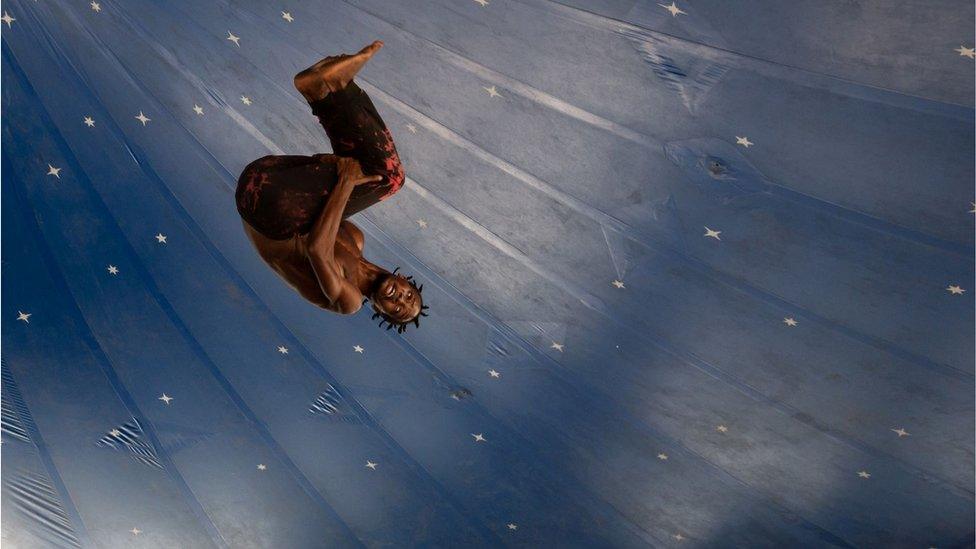
Mr Touré was sent to a Quranic school at the age of seven, where he was abused for learning the Islamic holy book too slowly.
He ran away to Senegal's capital, Dakar, where he lived on the streets for years before finding refuge at a shelter. One day, two Swedish circus performers came to teach the children acrobatics, and Mr Touré (below) fell in love.
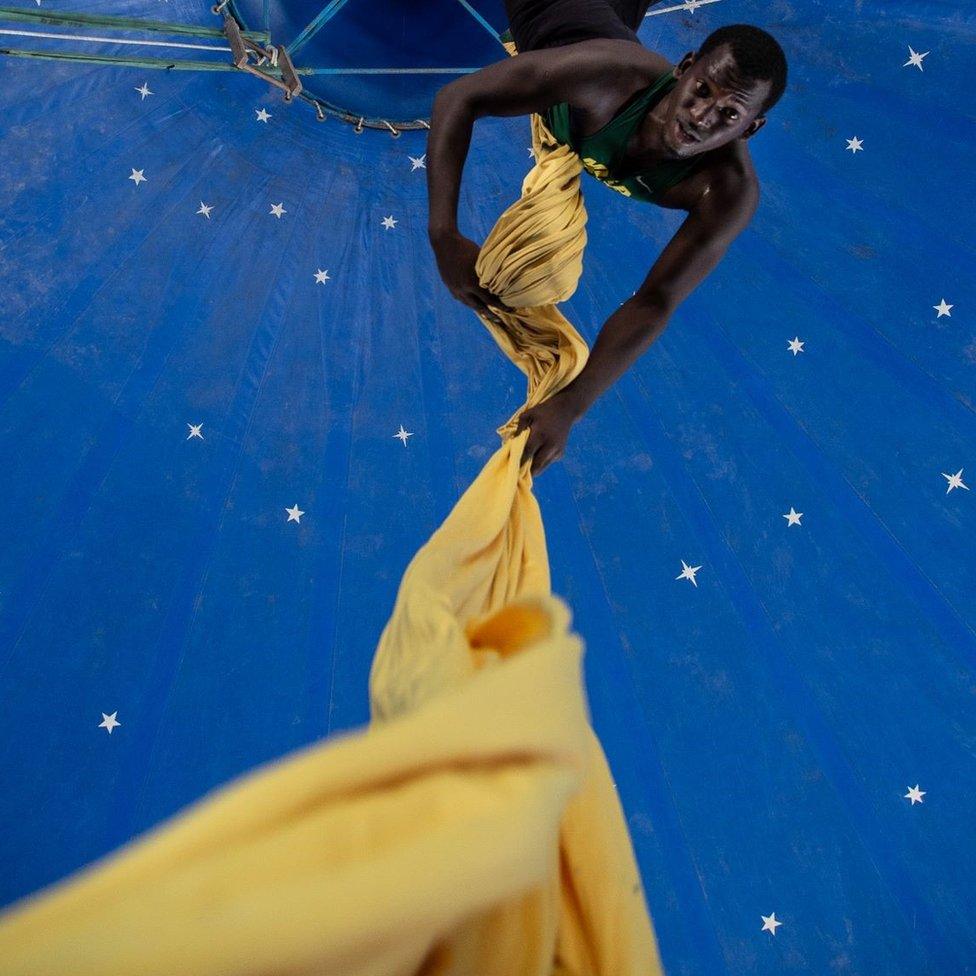

He trained in Sweden for three months and toured with professional circus troupes around the world, before setting up the Sencirk tent in Dakar.
"Circus is my therapy," says Mr Touré, now 31.
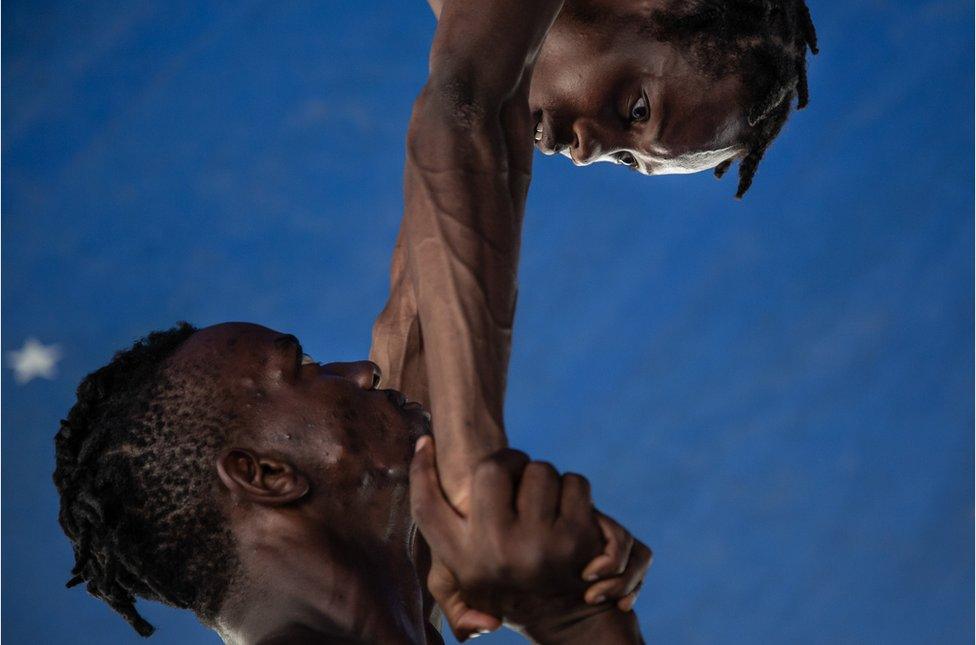

It helped him overcome his trauma and difficulties making eye contact and being touched.
The practice also assists him control his emotions and has the capacity to help others like him, he says.
"It gives them confidence and helps them battle their demons."
Every year, thousands of young Senegalese children are sent to the cities to study the Quran, only to find themselves forced into begging for money and food on the streets.
If they fail to meet the daily quota set by their teachers, or commit other minor offenses, they are often beaten and chained.
Some of them escape and like Mr Touré find help in a network of shelters.
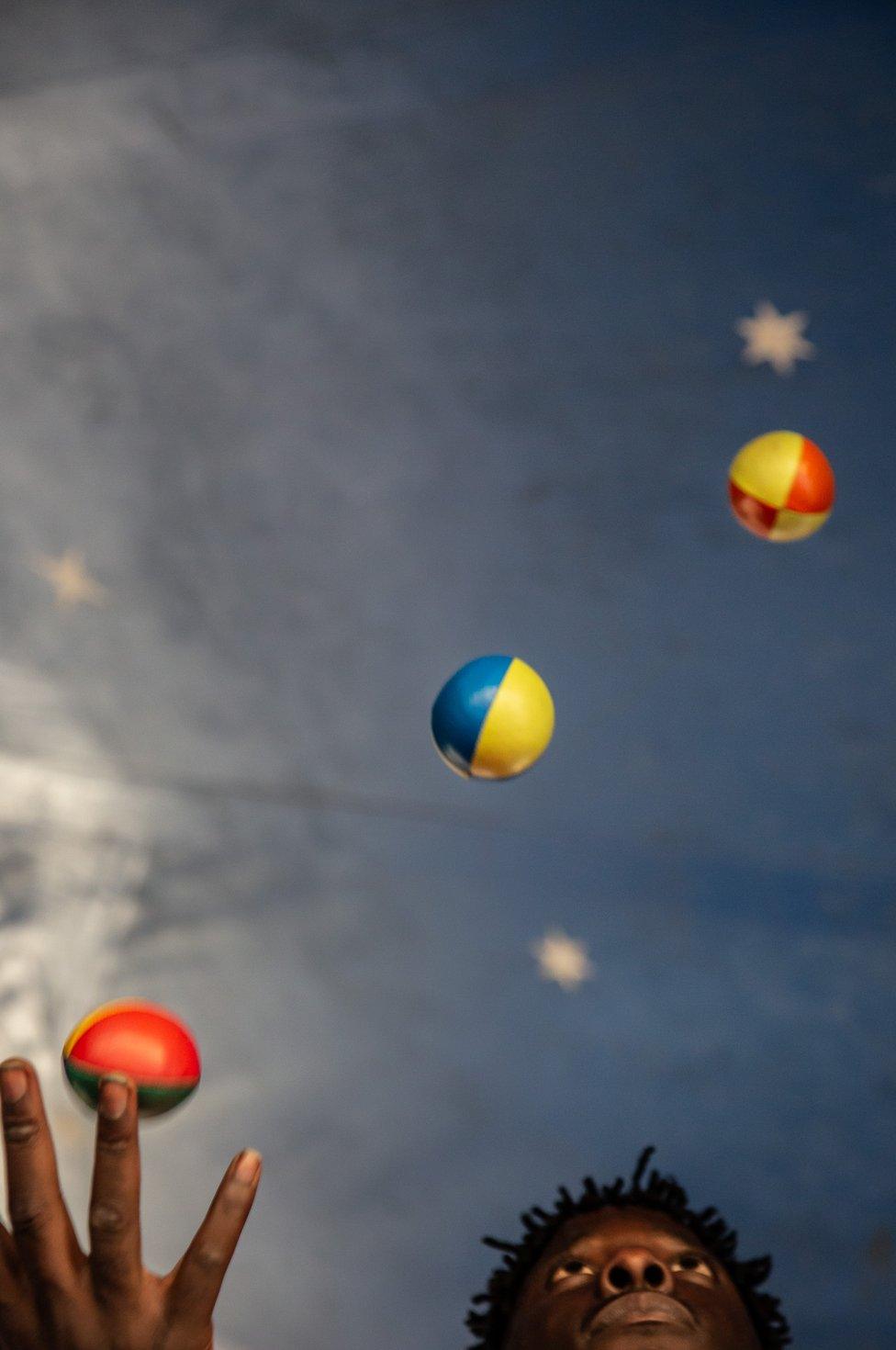

One of the young circus practitioners - not pictured here to protect his privacy - has a similar story to Mr Touré, having run away from Quranic school after he recalls being restrained and whipped each time he recited the Quran incorrectly.
The 14-year-old says he loves everything about the circus: "It helps me learn and it makes me aware."
If he ever makes it home, he plans to teach circus to the kids in his neighbourhood.
He hopes to join Sencirk as a full-time performer one day.
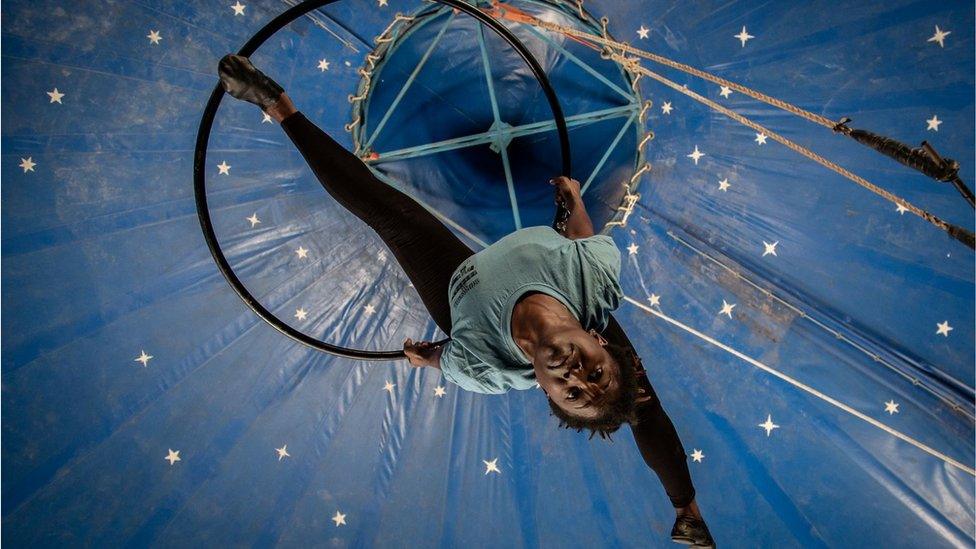
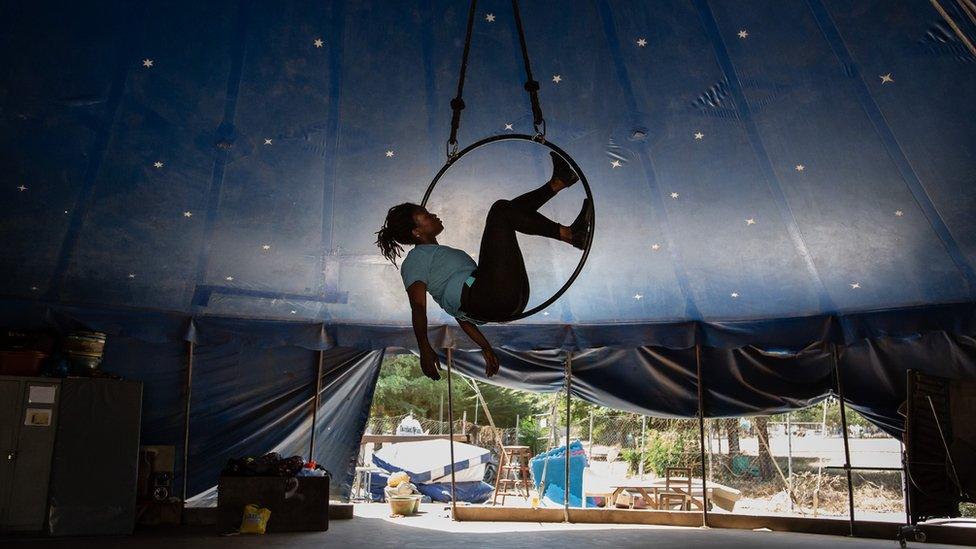
Mr Touré's troupe conducts regular free workshops at rescue homes for street children and women's shelters to provide entertainment and identify talent.
"It shows them they can go from the streets to making a living in the circus," Mr Touré says.
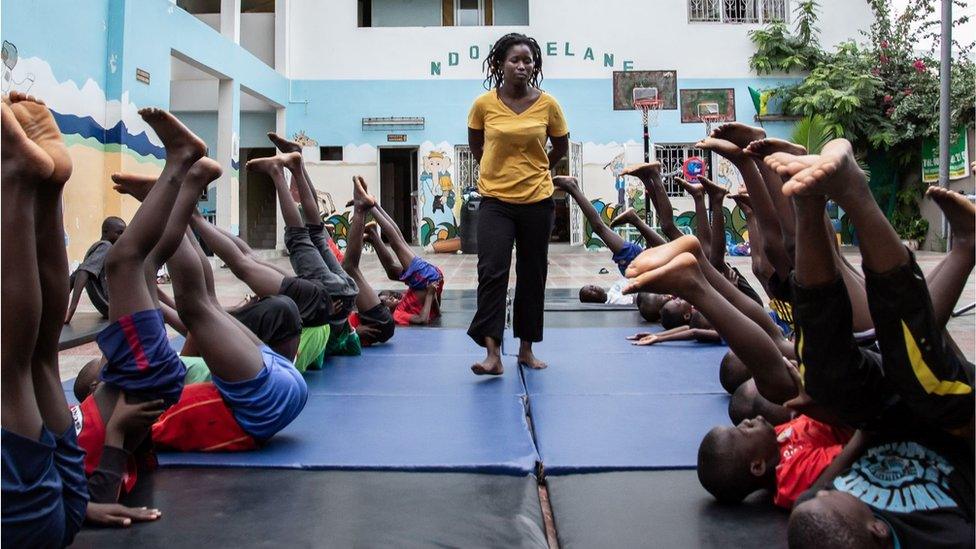
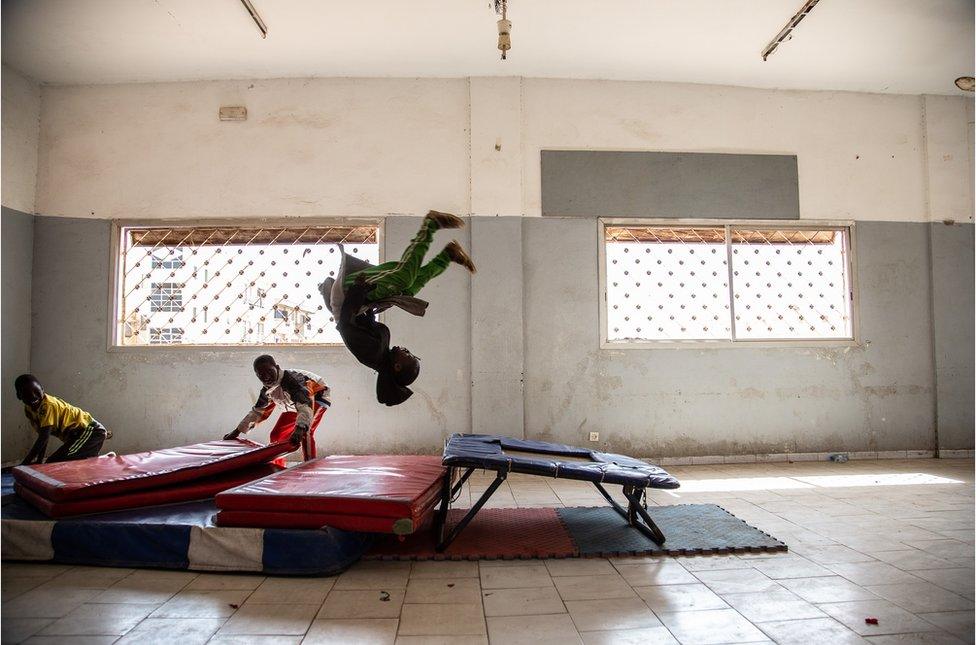
Out of both necessity and the desire to preserve what they call the "Africanness" of their shows, Sencirk uses locally found materials to make its equipment, such as trapezes, safety mats and juggling balls.
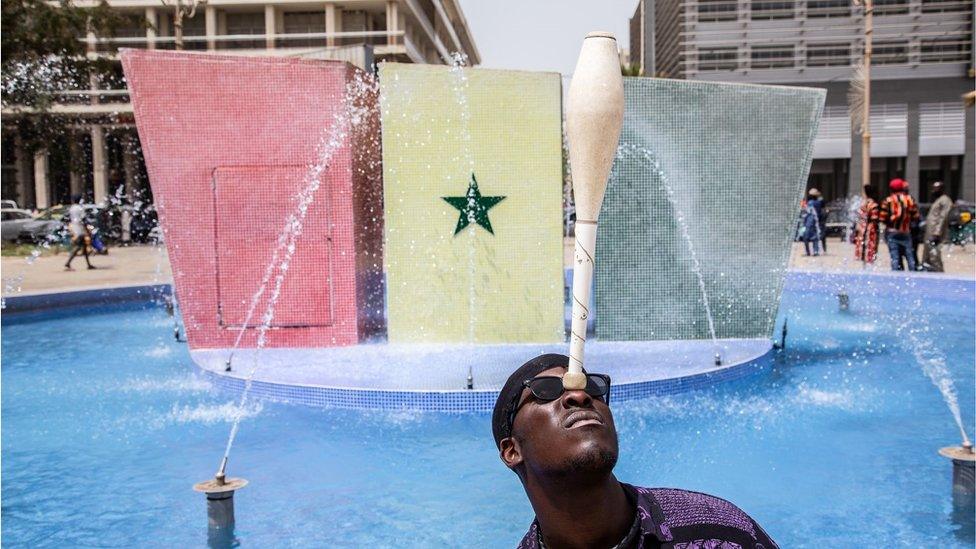
Sencirk's unique approach to circus is to share personal stories that other West Africans can relate to.
One performance portrays the draws and dangers of clandestine migration to Europe.
Another shares the experience of living as a talibé runaway.
It's a community built on resilience - a group of people working through shared trauma who are strengthened by their ability to overcome it together.
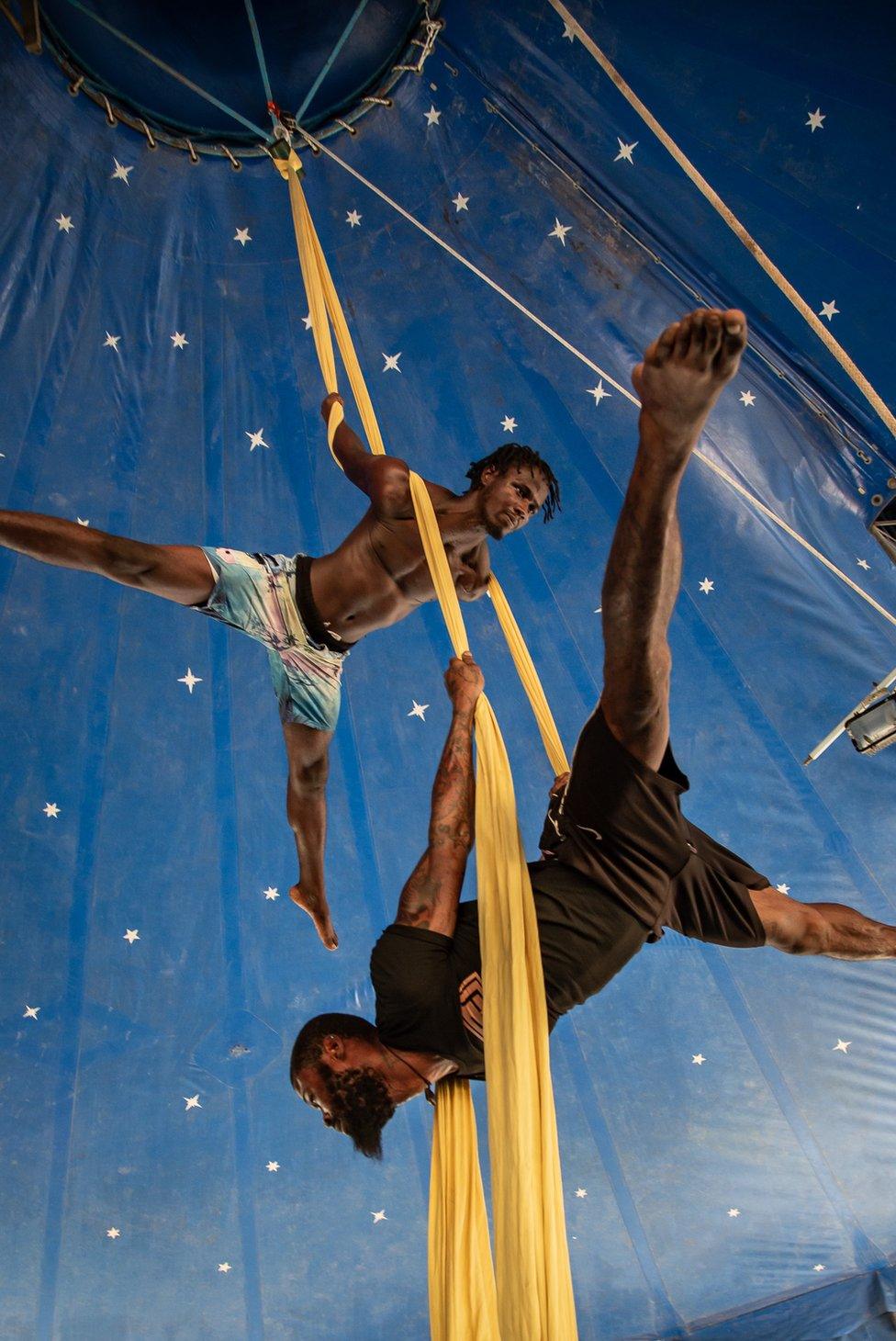

You may also be interested in:
All pictures subject to copyright